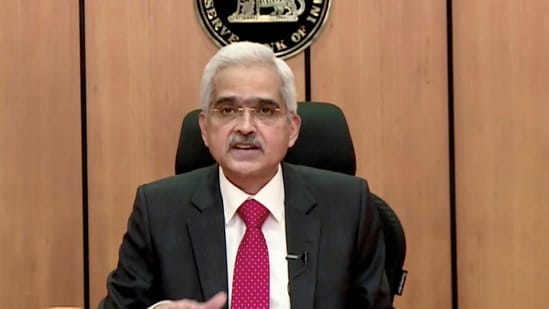Open to examine proposal on bad banks: RBI governor Shaktikanta Das
Talking about the governance reforms Das said integrity and quality of governance are keys to good health and robustness of banks and non-banking financial companies (NBFCs).
If there is any proposal on bad banks, the Reserve Bank of India (RBI) will examine the proposal, RBI Governor Shaktikanta Das during 39th Palkhiwala Memorial lecture on Saturday.

"Bad banks have been under discussion for a long time, we are open to looking up any proposal on bad banks. It is for the government to come up with such a proposal, and if any, we will examine the proposal," said Das while reply to a question.
Talking about the governance reforms Das said integrity and quality of governance are keys to good health and robustness of banks and non-banking financial companies (NBFCs).
"Recent events in our rapidly evolving financial landscape have led to increasing scrutiny of the role of promoters, major shareholders and senior management vis-a-vis the role of the Board. RBI is constantly focussed on strengthening the related regulations and deepening its supervision of financial entities. Some more measures for strengthening the governance in banks and NBFCs are in the pipeline and will be announced in the next few weeks," the RBI governor stated.
Cautioning about the rising non-performing assets (NPA) he said the current COVID-19 pandemic-related shock will place greater pressure on the balance sheets of banks in terms of non-performing assets, leading to erosion of capital.
"Building buffers and raising capital by banks - both in the public and private sector - will be crucial not only to ensure credit flow but also to build resilience in the financial system. We have advised all banks, large non-deposit taking NBFCs and all deposit-taking NBFCs to assess the impact of COVID-19 on their balance sheet, asset quality, liquidity, profitability and capital adequacy, and work out possible mitigation measures including capital planning, capital raising, and contingency liquidity planning, among others," Das said.
He further stated that primary estimates suggested that potential recapitalisation of banks' requirements for meeting regulatory norms, as well as for supporting growth capital, maybe to the extent of 150 basis points of Common Equity Tier-I capital ratio, for the banking system.
"Prudently, a few large public sector banks and major private sector banks have already raised capital, and some have plans to raise further resources taking advantage of benign financial conditions. This process needs to be put on the fast track," he added.
Replying to a question on the bond market Das said that RBI is in dialogue with the Securities and Exchange Board of India, and added, "We feel that few more steps are required and I can say that this is the work in process."
Stay informed on Business News, TCS Q4 Results Live along with Gold Rates Today, India News and other related updates on Hindustan Times Website and APPs



